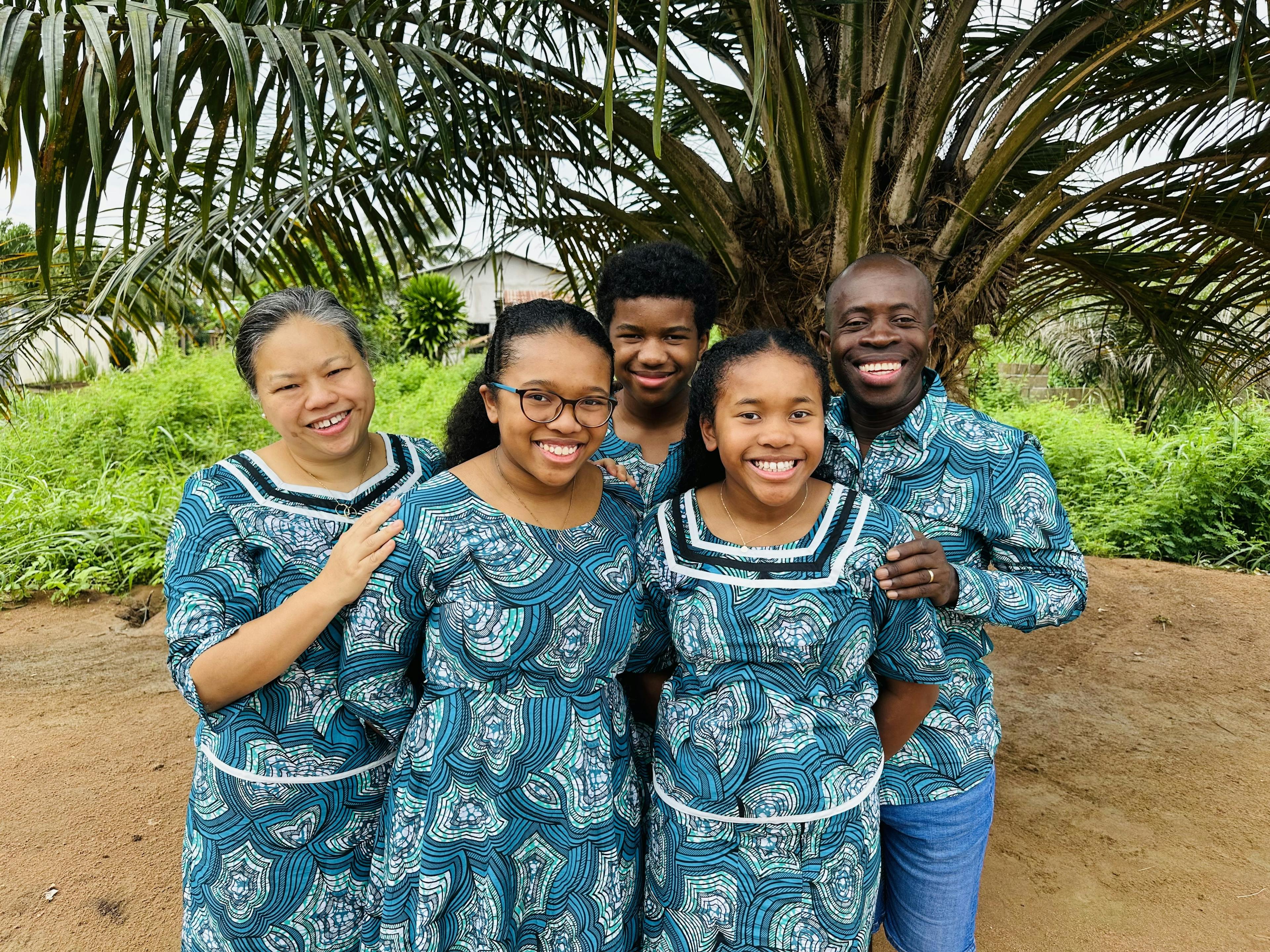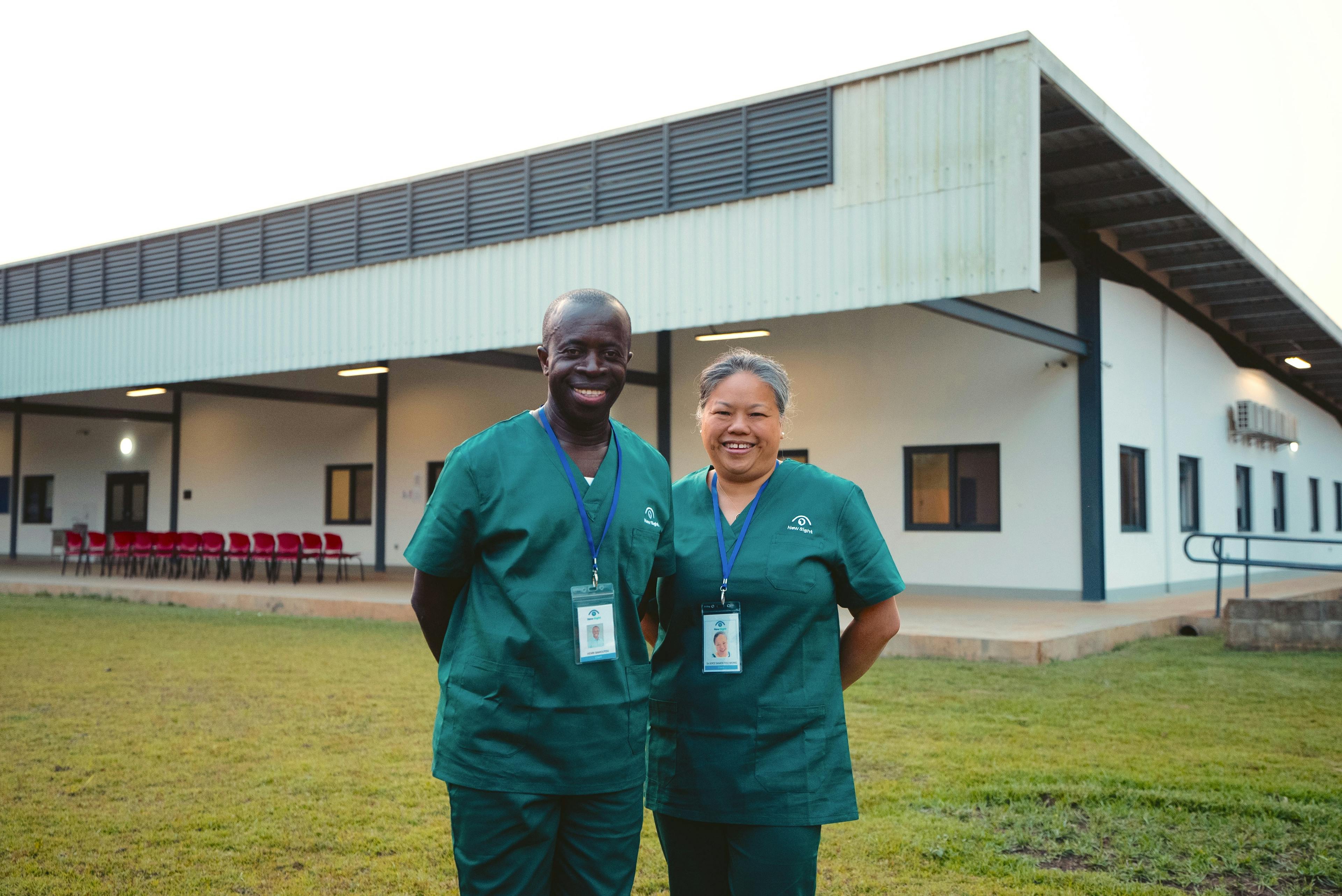
Dr Joyce Samoutou-Wong
From Scholarship to Sight: How one UWC Atlantic alumna is restoring sight and hope in the Republic of Congo
Growing up as an only child in Hong Kong, sheltered and unsure of her place in the world, Joyce describes herself as "spoiled" and a bit of a “Forrest Gump” figure, stumbling forward, excelling at school without fully grasping the bigger picture. That all changed when she received a full scholarship to attend UWC Atlantic from 1993-1995.
It was a turning point that would shape the rest of her life and ultimately, the lives she would go on to change.
“I used to believe I should only do things I was good at,” Joyce recalls. “UWC taught me to try, to fail, and to keep going. It gave me the courage to step far outside my comfort zone and that changed everything.”
At UWC, the world became real for Joyce. Meeting peers whose families had lived through apartheid, genocide and civil war moved global issues from headlines to heart. “If you don’t see, you don’t feel. And if you don’t feel, you won’t be moved to act.”

After UWC, Joyce studied medicine, convinced that it was a universally useful tool. Despite being risk-averse and family-oriented, she felt called to serve in Africa. What began with a journal entry “Seven reasons why I should never be a missionary” soon became a radical act of obedience, courage and purpose.
After completing her medical studies, Joyce and her husband Henri Samoutou moved to Gabon, where they helped establish and run the eye surgical centre of a mission hospital. With support from an international NGO, they grew the project to self-sufficiency, a rare achievement in charitable healthcare. Once the eye centre could operate independently, Joyce and Henri felt called to start again in an even more underserved region: the Republic of Congo.
Against all odds, despite limited funding and 48 rejections from global eye health organisations and with electricity available only three hours a day, three times a week, they pressed on. Even after a WHO expert advised them to choose a “less challenging country”, they refused to turn away, holding on to the conviction that those who are hardest to reach are the ones who need help the most.
They set up a charity called New Sight. Today, New Sight has built a 20-bed hospital in Ouesso, the Republic of Congo that provides life-changing eye surgeries, with plans to expand the 6-hectare site into a general hospital. It has recently launched dental services and is preparing to embark on child health initiatives.

And the impact is real.
A 15-year-old girl who had become blind after an eye injury and traditional healing that had gone wrong regained partial sight through surgery at New Sight. During her blindness, she went from being top of the class to dropping out of school for 3 years. Once withdrawn and hiding under a hoodie, she’s now beaming, thriving in a summer camp run by New Sight and dreaming of going back to school.
“Her life shifted from isolation and hopelessness to joy, community and a future. That’s the power of sight and of life transformed.”
New Sight not only delivers surgeries but empowers communities through training, partnerships with over 40 schools and a national children’s magazine with more than 22,000 readers. Joyce and Henri’s own children started Project Two Front Teeth, an initiative to empower children and youth to make a difference. The hospital is off-grid, powered by 756 solar panels, and hosts regional health meetings. The goal? Holistic, accessible and sustainable healthcare built by and for the people it serves.
But Joyce is quick to add, “This is only the beginning. We need help, not just financial support and doctors, but maintenance staff, administrators and anyone willing to serve. There’s so much meaningful work to be done.”
Joyce remains deeply grateful to the donors who gave her the UWC scholarship that changed her life.
“I was privileged enough to actually meet the couple who funded my scholarship. I wrote to them and said, ‘I want to show you what we’re doing now, and I’m not sure if any of this would have been here if it weren’t for you.’ It really empowered me to help the patients we now serve, the children in our community projects, all of it. Someone believed in me enough to give up something of their own so that I could have a chance. I could cry about it, that kind of generosity changed my life – and the lives I am humbled to touch.”